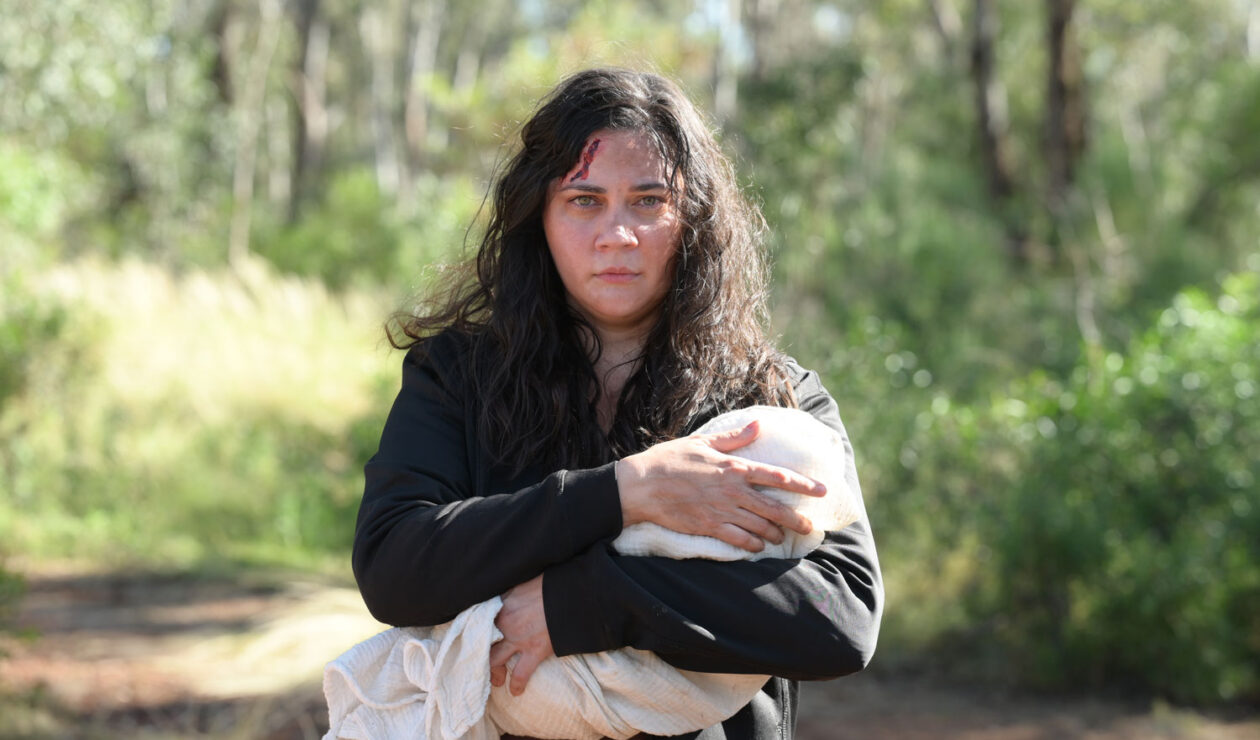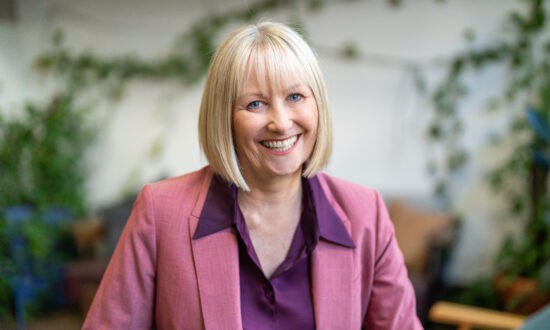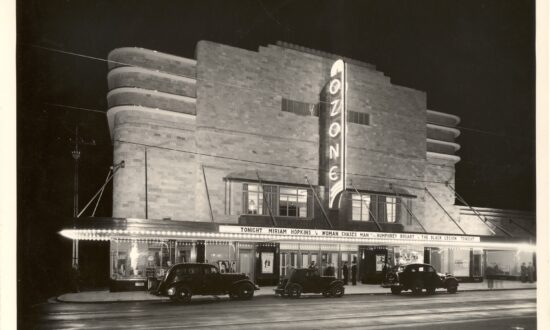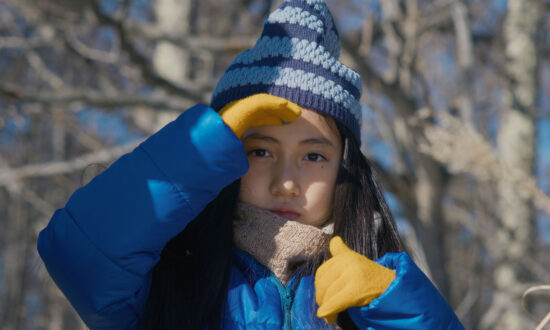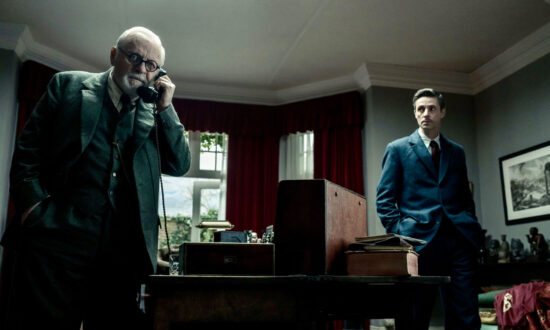The Moogai, a First Nations horror story about a disturbed young mother who becomes convinced her child is possessed, premiered at Sundance Film Festival last week – one of only two Australian films selected for the first major international screen event of 2024.
South Australian company Kojo Studios took a lead visual effects role in the film, whose theme is reminiscent of 1960s horror classic Rosemary’s Baby and Jennifer Kent’s 2014 psychodrama The Babadook, which premiered at Sundance a decade ago and returned this year as part of the festival’s 40th Edition Celebration program.
The Moogai builds on the reputational strength of Australia’s contribution to Sundance last year, which included the international hit Talk to Me, co-written and directed by Adelaide’s Philippou brothers Danny and Michael. Its subject and style will help cement Australia’s reputation as a fresh new voice that is reinventing horror.
“Absolutely, it’s a different lens, a different way of making films,” says Marty Pepper, Kojo executive director, post-production. “And Causeway [the production company behind The Moogai and Talk to Me] has this amazing ability to attract new talent, or look over the horizon and see it coming.”
Kojo came late to The Moogai, which began life as a short film from Indigenous writer and director Jon Bell. After visiting Bell in Ballina in New South Wales to understand more about the film’s First Nations spirituality, Pepper offered an equity deal that provided the visual effects The Moogai needed and eased pressure on its budget while giving Kojo a stake in the outcome – something it did with Talk to Me to good effect.
“By any stretch of the imagination, [The Moogai] was a very modest budget and there was a very big sequence at the end that required enormous amounts of visual effects,” Pepper says.
“I think what happened was the film started in one place where a lot of the work was to be shot live action but, due to the circumstances of the shoot, a lot of that could not be achieved in camera.”
Once the work came to South Australia, Kojo built a replica of the set at the front of Pepper’s property near Willunga and set fire to it to film a sequence that incorporated live action into the visual effects.
“It was very controlled but we did a 25-metre burn in a carefully constructed set that replicated exactly what they had used in New South Wales, perfectly to scale in every way,” Pepper says. “Now the film is finished, it’s seamless where our work began and finished.”
Pepper was brought in by producer Kristina Ceyton. She and co-producer Samantha Jennings at Causeway Films are the midas team who have nurtured the new talent behind The Babadook and Talk to Me, both of which were made in South Australia and became international hits.
Pepper says The Moogai is not unlike The Babadook, although it incorporates themes related to the Stolen Generation and Dreaming.
“There’s a whole lot of messages in it and I had to be careful that what we did didn’t become too fantasy, or not realistic, so we ended up generating a load of [visual effects] red-bellied black snakes,” he says.
“There is some very good sound design on the film as well and you can feel the spiritual energy that goes on with the snakes in the film, and the Dreaming that provides the protection the characters need.”
Pepper and the crew who worked on The Moogai watched the finished film at a screening at the Kojo studios just before Christmas.
“It is a really, really good film and I can see why Sundance have picked it up because it is just unusual enough to be good – Indigenous filmmakers and Australian storytelling that is quite fresh.”
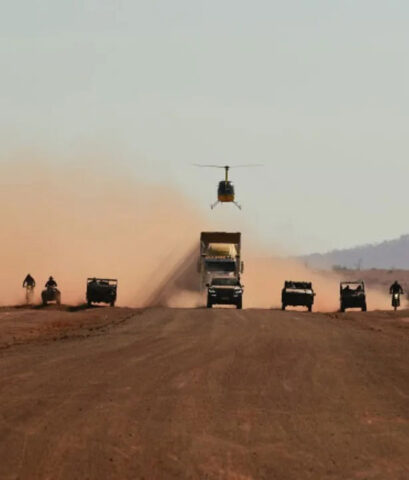
Desert King is described as the largest Netflix series filmed in SA. Photo : Netflix
Since The Moogai – which will screen in Australian cinemas later this year and has also just been announced as one of five Australian screen projects selected for the 2024 South by Southwest (SXSW) Film & TV Festival in Austin, Texas – Pepper has been working as on-set VFX supervisor on Desert King, the largest Netflix series filmed in South Australia and one of the biggest screen productions in the state.
The epic neo-western drama draws on themes from mega-hits Succession and Yellowstone in a story about the world’s largest cattle station being left without a clear successor. Successive generations are at war, which draws the attention of desert gangsters and powerful cattle barons looking to pick up land while Indigenous elders and billionaire miners join the power struggle.
Netflix has given few details about the production, which filmed in South Australia and the Northern Territory, but in a statement content head Que Minh Luu calls it “the ultimate tale of big land – big land and all the high-stakes drama that comes with it”.
No casting has been announced and filming has finished but post-production will take place in South Australia. Investors include the South Australian Film Corporation through its Screen Production Fund, and it is directed by Greg McLean, who made the Wolf Creek films and television series largely in South Australia. Editing will be shared between Adelaide and Melbourne, with visual effects and grading returning to South Australia.
“It’s a very, very big job,” Pepper says.
Multiple productions were underway in South Australia towards the end of last year, at Adelaide Studios and on location around the state.
Australian actress Miranda Otto (Homeland, Talk to Me) and American Debi Mazar (Entourage) lead the cast of Ladies in Black, an ABC production directed by Otto’s sister Gracie (The Clearing, Heartbreak High) which becomes the second television series to be funded under the SAFC Content Pipeline Fund set up by the Malinauskas Government.
The six-part drama follows the 2018 film of the same name starring Angourie Rice and tracks cultural change in 1960s Australia. Based on the novel The Women in Black by Australian writer Madeleine St John, it follows the personal lives of women behind the counter of Goodes Department Store and also stars former Adelaide actor Kate Box, Jessica De Gouw, and Gemma Ward. The series has been named by the ABC as one of its 2024 highlights, although no screening date has yet been announced.
Well-known Australia actor Marta Dusseldorp (Bay of Fires) has also been in South Australia filming With or Without You, described as an inspirational mother-daughter story about love and safety. Dusseldorp plays an alcoholic mother who takes a road trip with her daughter (played by Melina Vidler, from 800 Words) and West African refugee Dalu (Albert Mwangi). It was made with Adelaide Film Festival Investment funding and will have its premiere at this year’s Adelaide Film Festival (AFF).
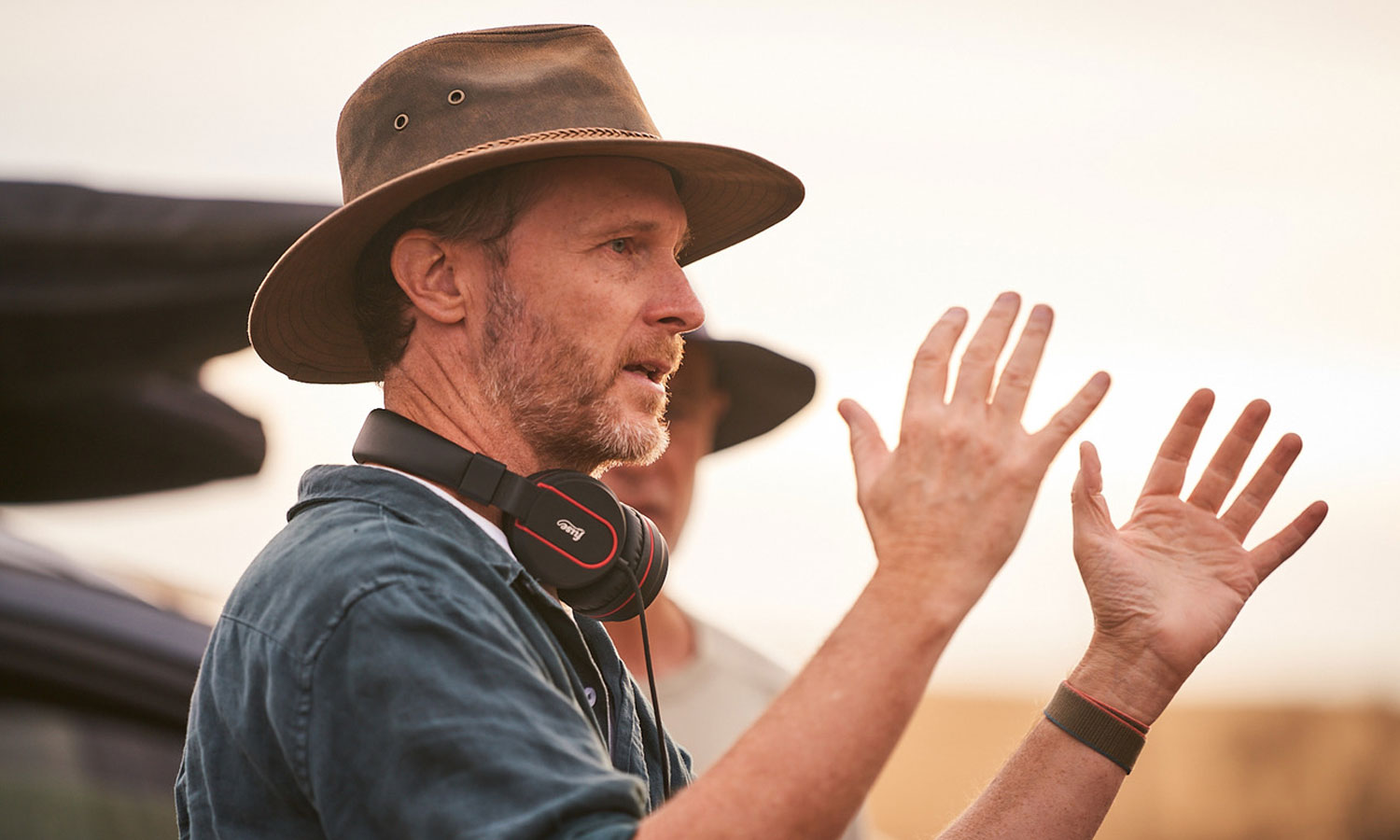
South Australian Tim Piper is directing the new feature film Kangaroo Island. Photo: supplied
Also premiering at this year’s AFF will be Kangaroo Island, a feature film directed by South Australian Tim Piper, written by South Australian screenwriter Sally Gifford, and featuring an all-Australian cast including Adelaide’s Erik Thomson (Aftertaste). The feature, supported by the SA Film Corporation (SAFC) and the festival’s investment fund, is a relationship comedy-drama about a struggling Hollywood actress forced to reunite with her sister to honour their father’s dying wishes.

Get InReview in your inbox – free each Saturday. Local arts and culture – covered.
Thanks for signing up to the InReview newsletter.
Kangaroo Island also stars Rebecca Breeds (Clarice), Adelaide Clemens (Justified) and WA actor Joel Jackson (Safe Harbour), and was produced and filmed late last year on the picturesque island. Piper, who has been running an advertising agency in New York, said he was thrilled to be filming in his hometown with Gifford’s script and on Kangaroo Island, which he described as “a spiritual and magical place”.
SAFC CEO Kate Croser says Kangaroo Island will showcase South Australia’s natural beauty to audiences at home and overseas, and also increases the capability of he state’s screen sector.
Finally, following on from the dramatic sci-fi thriller Monolith in the SAFC Film Lab program is a very different animated comedy, Lesbian Space Princess, the adventures of an anxious space princess forced out of her sheltered life into a galactic quest to save her ex-girlfriend – the one who dumped her for being needy – from danger. It will also premiere at AFF 2024.
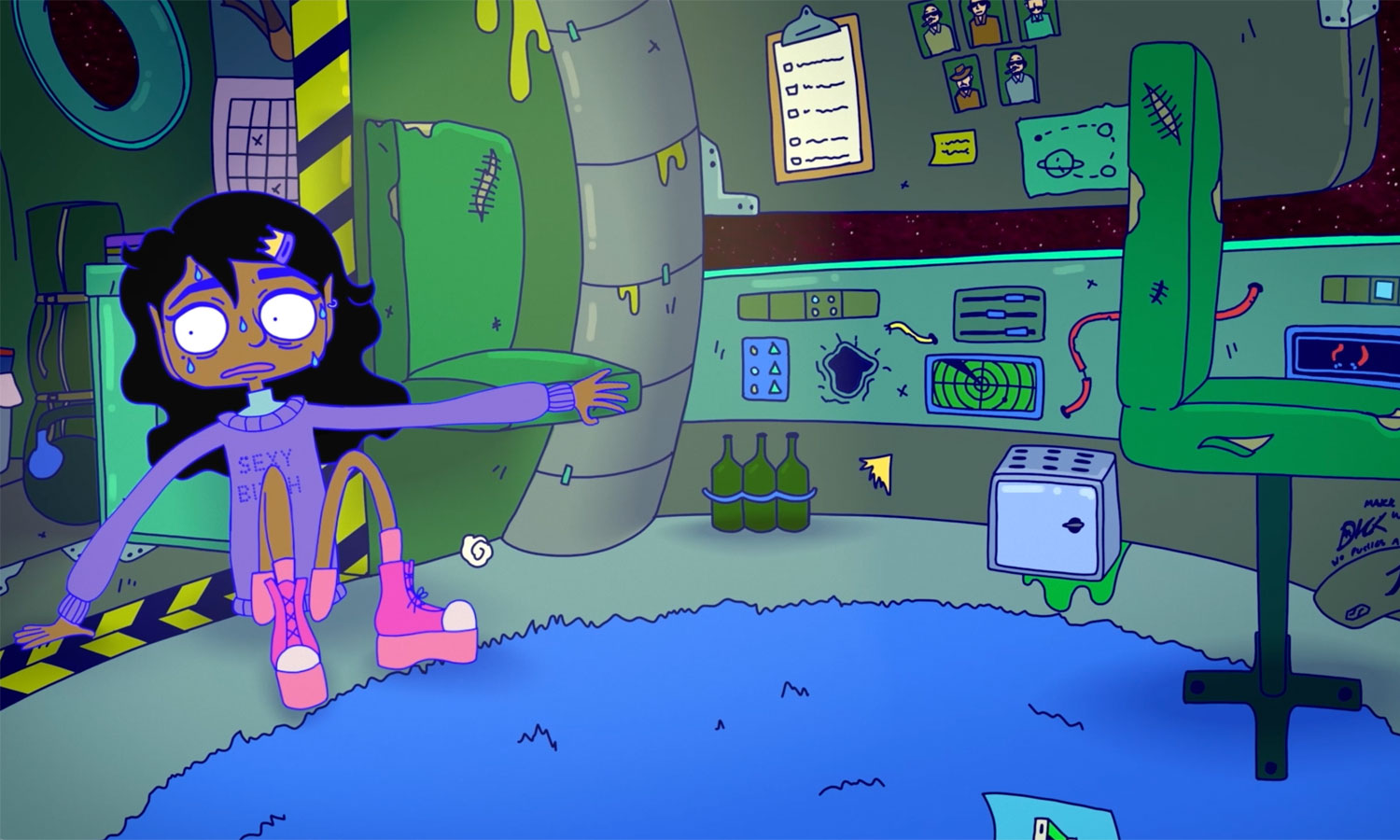
Lesbian Space Princess will premiere at Adelaide Film Festival. Photo: supplied
Support local arts journalism
Your support will help us continue the important work of InReview in publishing free professional journalism that celebrates, interrogates and amplifies arts and culture in South Australia.
Donate Here
